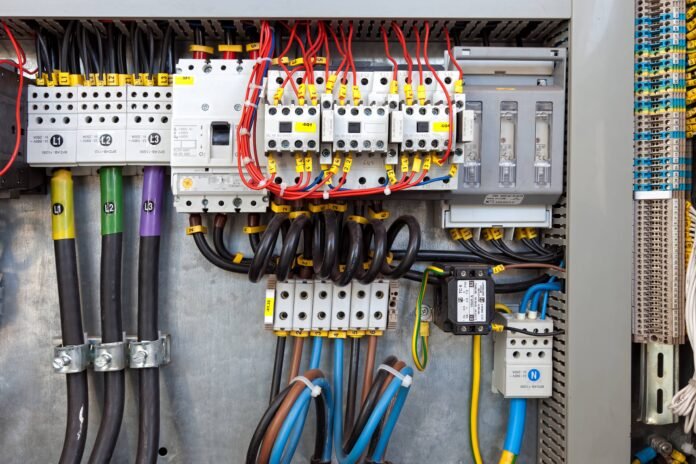Maintaining an electrical control panel is crucial for ensuring the longevity and efficiency of your electrical systems. Regular maintenance can prevent unexpected failures, reduce downtime, and enhance safety. In this guide, we will explore the best practices for maintaining your electrical control panel to ensure optimal performance.
Understanding Electrical Control Panels
An electrical control panel is a central hub that houses electrical components used to control and monitor various mechanical processes and equipment. These panels are essential in industrial, commercial, and residential settings, ensuring the smooth operation of electrical systems. Key components of an electrical control panel include circuit breakers, relays, transformers, and control devices.
Why Maintenance is Important
Regular maintenance of electrical control panels is vital for several reasons:
- Safety: Proper maintenance reduces the risk of electrical fires and accidents.
- Efficiency: Well-maintained panels operate more efficiently, saving energy and reducing costs.
- Reliability: Regular checks and upkeep prevent unexpected breakdowns, ensuring continuous operation.
- Longevity: Maintenance extends the lifespan of electrical components, providing a better return on investment.
Steps for Maintaining Your Electrical Control Panel
1. Regular Visual Inspections
Performing regular visual inspections is the first step in maintaining your electrical control panel. Look for signs of wear and tear, corrosion, loose connections, and any physical damage to the components. Addressing these issues early can prevent more significant problems down the line.
2. Cleaning the Panel
Dust and debris can accumulate inside the control panel, affecting its performance. Regular cleaning ensures that the components function correctly and reduces the risk of overheating. Use a vacuum or a soft brush to remove dust, and avoid using compressed air as it can force debris into sensitive areas.
3. Checking Connections
Loose or corroded connections can lead to electrical failures and pose safety hazards. Regularly check all connections within the panel, tightening any loose ones and cleaning any that show signs of corrosion. This practice ensures a stable and reliable electrical system.
4. Testing Components
Regularly test the components within the control panel to ensure they are functioning correctly. This includes checking the operation of circuit breakers, relays, and transformers. Replace any faulty components immediately to maintain the integrity of the system.
5. Monitoring Temperature
Overheating is a common cause of electrical failures. Use infrared thermography to monitor the temperature of the control panel and its components. Identifying hot spots early can help you address potential issues before they lead to system failures.
6. Verifying Labels and Documentation
Ensure that all labels and documentation within the control panel are up-to-date and clearly visible. Proper labeling helps in identifying components quickly during maintenance and troubleshooting, saving time and reducing errors.
7. Updating Software and Firmware
For electrical control panels that include programmable logic controllers (PLCs) or other digital controls, keeping the software and firmware up-to-date is essential. Regular updates ensure that the system benefits from the latest features and security enhancements.
When to Call in Professionals
While regular maintenance can be performed by trained personnel, some tasks require professional expertise. For complex issues or extensive maintenance, it is advisable to seek professional services. Manikaran offers expert electrical transformer installation and electrical control panel installation, ensuring your systems are installed and maintained to the highest standards.
Benefits of Professional Maintenance Services
- Expertise: Professionals have the knowledge and experience to identify and address issues accurately.
- Safety: Professional maintenance ensures that all safety protocols are followed, reducing the risk of accidents.
- Compliance: Professionals ensure that your electrical systems comply with relevant standards and regulations.
- Efficiency: Expert maintenance enhances the efficiency and reliability of your electrical systems.
Conclusion
Maintaining your electrical control panel is essential for ensuring the optimal performance of your electrical systems. Regular inspections, cleaning, testing, and professional maintenance services can prevent unexpected failures, enhance safety, and extend the lifespan of your equipment. By following these best practices, you can ensure that your electrical control panel operates efficiently and reliably.
For more information on professional installation and maintenance services, explore electrical transformer installation and electrical control panel installation offered by Manikaran. Trust Manikaran to provide comprehensive solutions tailored to your specific needs, ensuring the highest standards of safety and performance.
By adhering to these maintenance practices, you can achieve optimal performance from your electrical control panels, contributing to the overall efficiency and reliability of your industrial or commercial operations.



